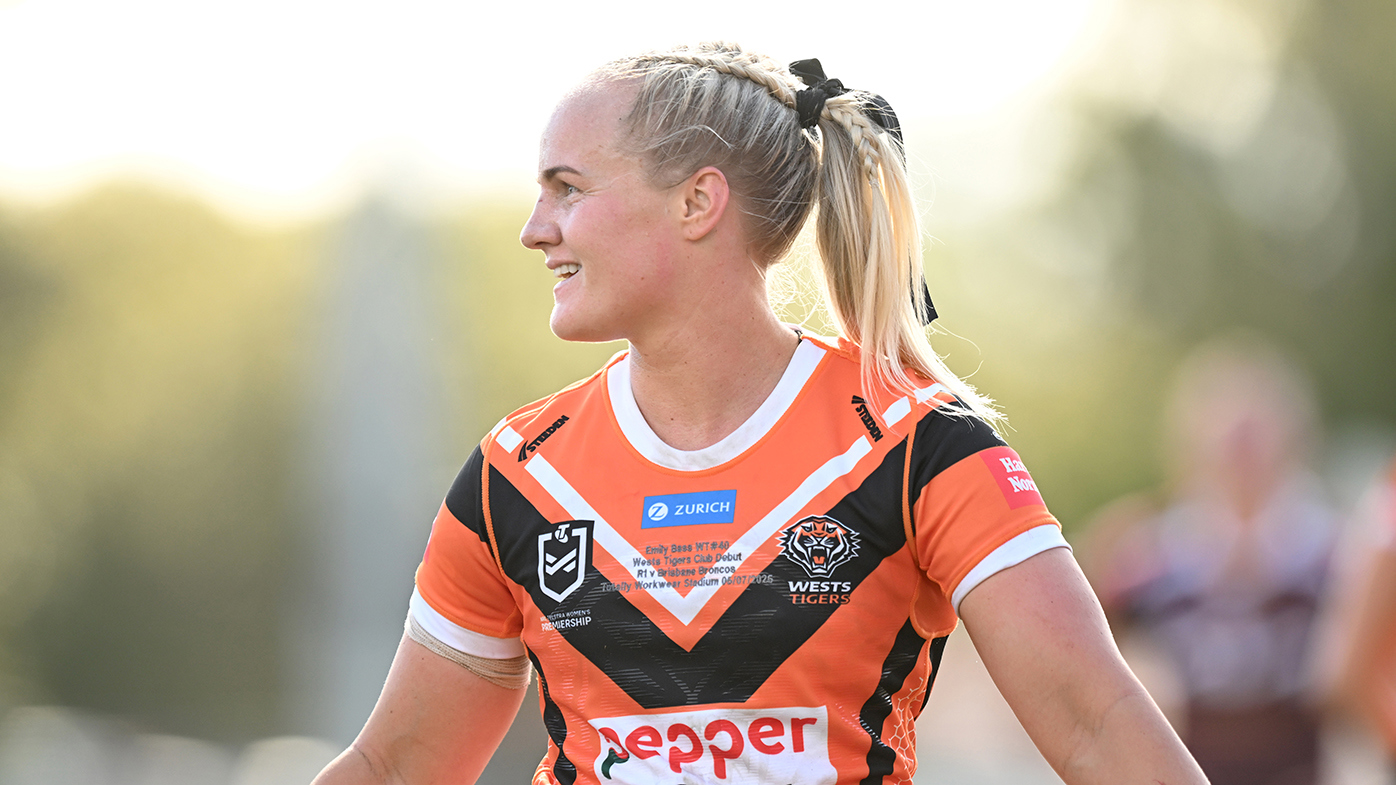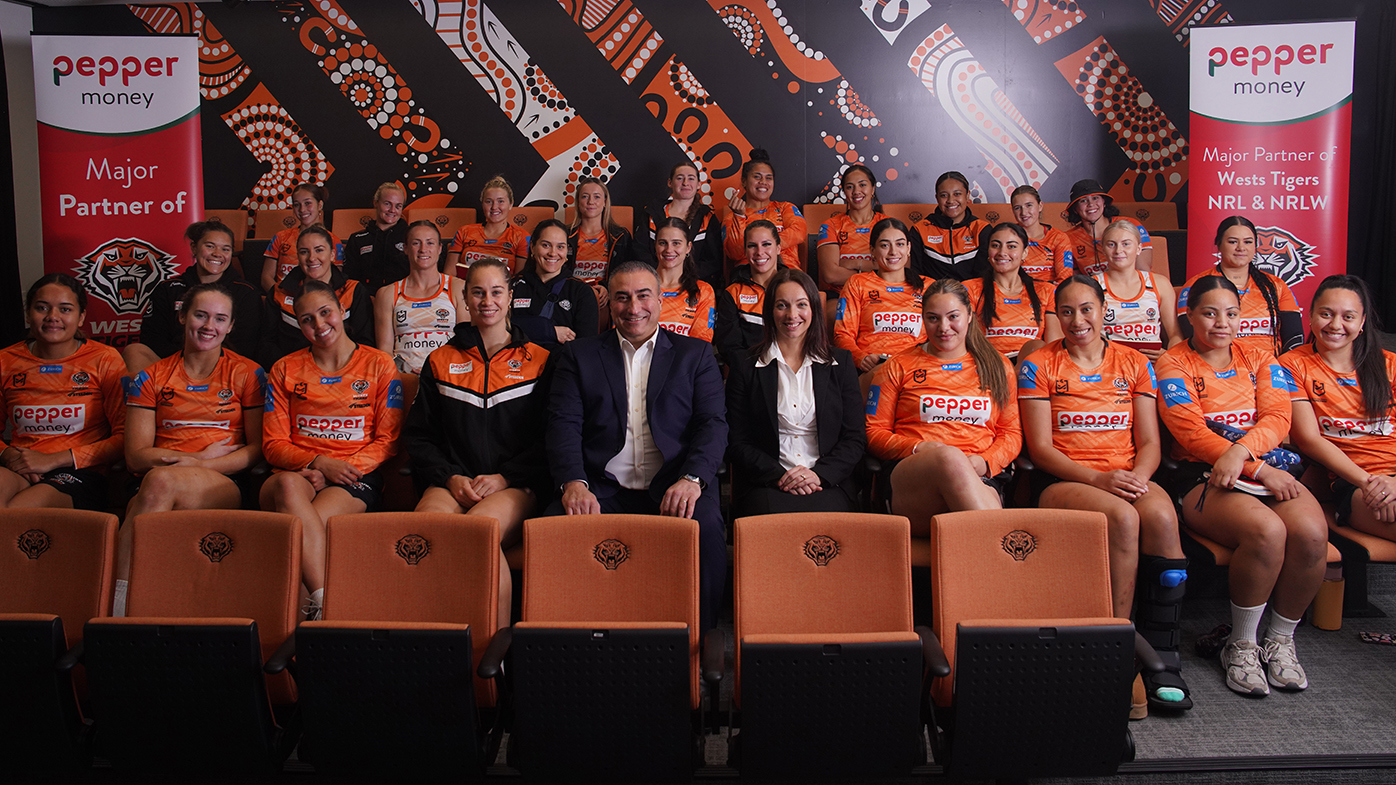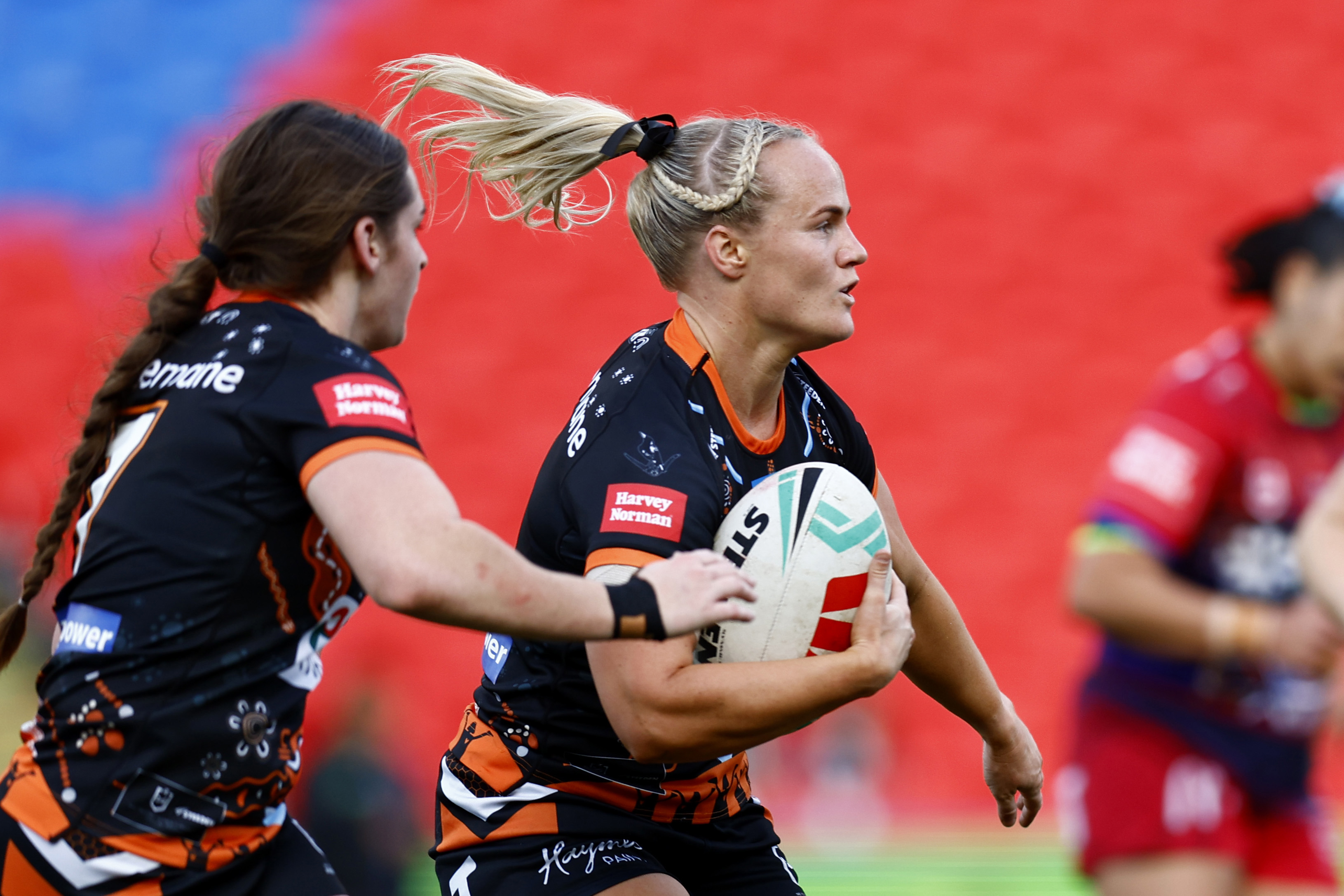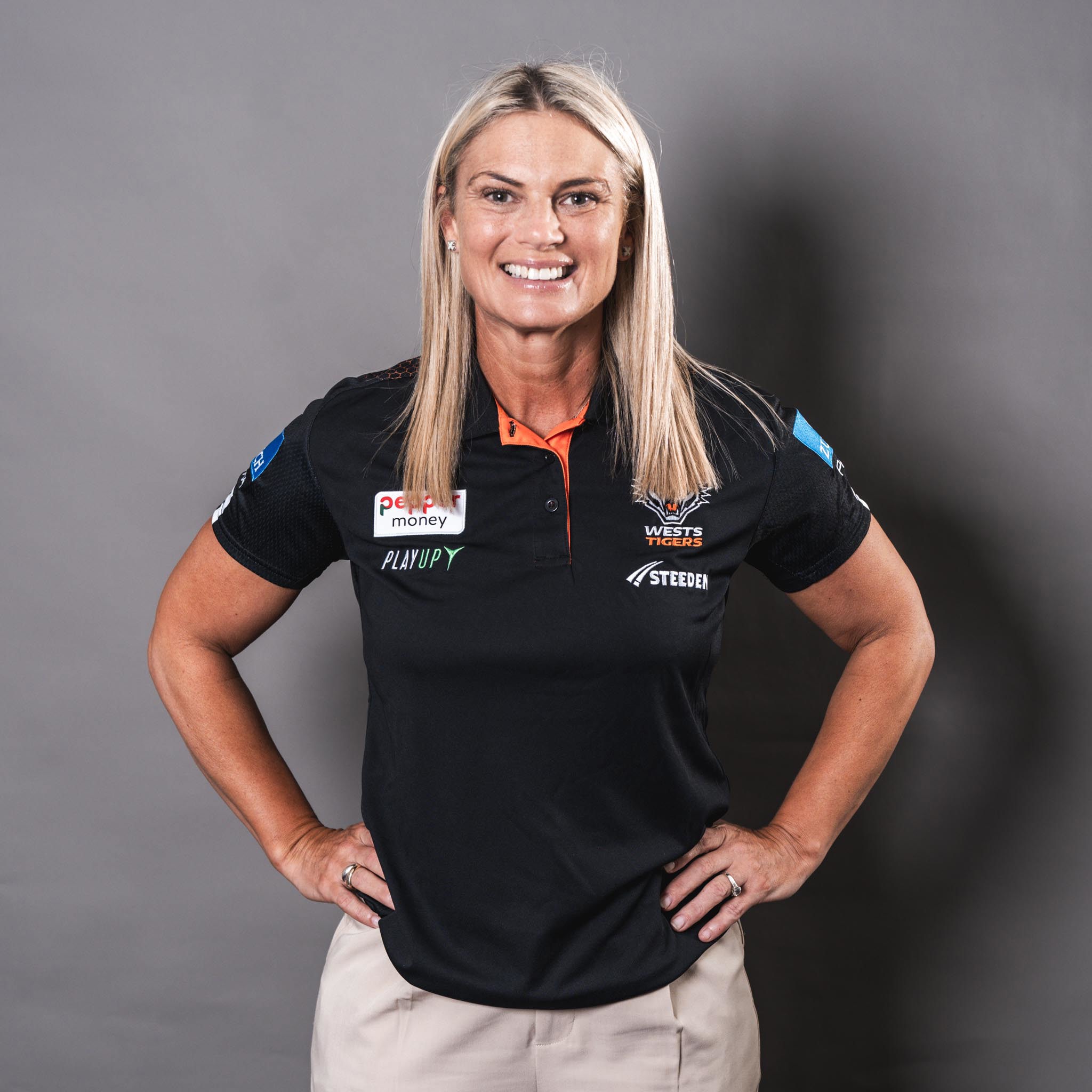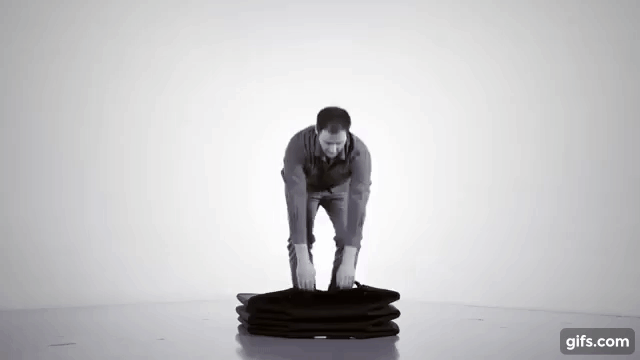Why women in their 20s like Emily are already planning for retirement

EXCLUSIVE: Wests Tigers NRLW star Emily-Claire Bass is only 26 but she's already making plans for retirement.
Not because she wants to give up the sport but because if she doesn't get her finances in order now, she fears she might find herself without a job or any savings in a few years' time.
Research suggests about 8.5 million Australians adults are financially illiterate, many of them women.
More than 60 per cent of Australian men demonstrate basic financial literacy compared to just 48 per cent of women.
And for female athletes, that financial literacy gap can be even wider.
Now the Wests Tigers are doing something about it.
The club has partnered with Pepper Money to deliver financial literacy workshops to its NRLW team, providing education tailored to women in elite sport and the unique financial challenges they players face.
The gender pay gap, limited endorsement and sponsorship opportunities, and a lack of investment in women's codes puts significant financial strain on Australia's sportswomen, especially those in emerging leagues like the NRLW.
"Their contracts are shorter, their pay is lower, and their financial journey often includes planning for family or career transitions," Pepper Money chief executive Mario Rehayem told 9news.
"They're also building the foundations of a league that's still evolving. That means they need to be even more financially aware and proactive."
READ MORE: Call for urgent 'change of approach' following horror cop shooting
The NRLW salary cap was $1.2 million this year. In the men's league it was almost 10 times higher.
The men's minimum salary was triple that of the women's ($120,000 compared to $41,800) and they earned twice as much per game in the 2025 State of Origin series.
It's worth noting that the men's code is more established and lucrative – but that doesn't make the pay gap any easier for female athletes to navigate.
Most have to work additional jobs on top of training and competing, which Bass did all through her first five NRLW seasons.
The juggle was "a lot" and when she joined the Wests Tigers this year she made the risky decision to focus on footy full-time.
"Not having that dual income from my other job, I'm not earning as much money as what I did last year," she told 9news.com.au.
READ MORE: The twisted messages posted by church mass shooter
The new 'Mastering Money On and Off the Field' workshops has been invaluable as she navigates the transition from two incomes to one.
They teach players how to establish smart money habits during their playing career and set themselves up for a financially sound future after retiring from the game.
One in three athletes admit to making poor financial decisions, according to the Professional Footballers Australia (PFA), and two in five elite athletes aged 18-34 reported suffering poor mental health as a result of financial stress.
"NRLW contracts aren't the most amount of money [and] I'm not too sure where my income is going to come from in the future," Bass said.
"That's a little bit scary, it's an uncertain situation to be in, so Pepper Money did talk to us about that emergency fund as well.
"So post career, if I do struggle to find work or I'm not working for three months for some reason, like I get injured, I do have that safety net there."
READ MORE: Polar blast brings 100km/h winds and blizzards for millions
Almost 90 per cent of athletes need to find new employment post-career to maintain financial security, according to UNI World Athletes, and it's doubly hard for women.
Female athletes typically receive fewer career opportunities when they retire than their male counterparts; just ask Charmain Steventon.
She debuted on the Australian Sevens team in 2000, represented Australia at the 2002 Rugby XVs World Cup, and won five premierships with West Harbour RFC, and did it all while working a second job.
When she finally hung up her boots, she was fortunate to have supportive employers and mentors who helped her secure work.
Not every player was so lucky, especially in an era where financial literacy and planning for a future after footy "wasn't even on the radar".
Now the Wests Tigers Head of Women's Football, Steventon is determined to change that for the next generation.
READ MORE: Major Russian attack includes rare strikes on the centre of Kyiv, killing at least 21
"Equalling the playing field is really important, particularly now that the female players are being paid for playing footy," she told 9news.
"It's a long term vision but it will certainly pay off."
Ensuring the current NRLW cohort are financially literate will build a strong foundation for future players and set a positive example for the next generation.
For Bass, who is now trying to plan a wedding on an NRLW contract salary after years of having a dual income, it has been invaluable.
She just hopes the workshops and others like them will be picked up by other clubs across the NRLW and other codes of women's sport.
"It really gives us a perspective on life in general, where our money is coming and going, and how we can properly invest in not just our career right now, but the next 30 to 50 years, and set ourselves up for the future."
DOWNLOAD THE 9NEWS APP: Stay across all the latest in breaking news, sport, politics and the weather via our news app and get notifications sent straight to your smartphone. Available on the Apple App Store and Google Play.


